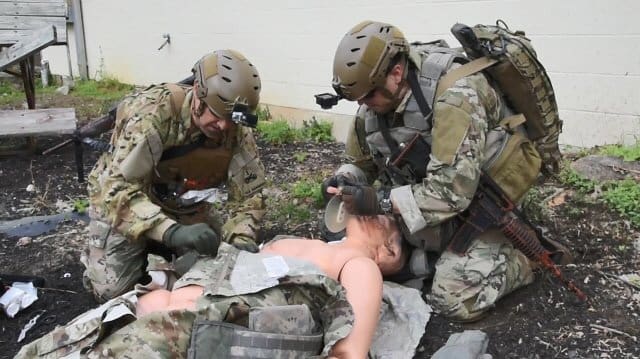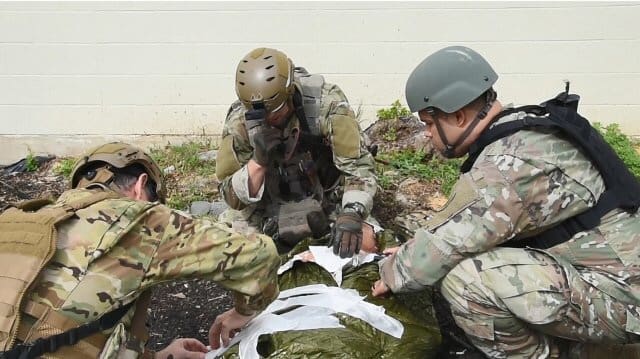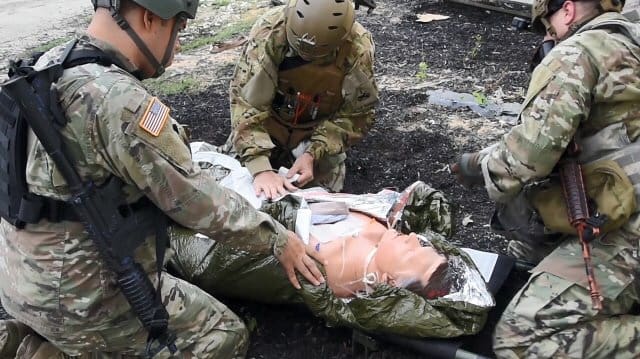FORT SAM HOUSTON, Texas — The Tactical Combat Medical Care Course (TCMC) began in April 2004 when several Physician Assistants (PAs) noticed that many medical Soldiers were being deployed to combat areas without being properly equipped or trained in medical combat readiness. The TCMC covers a wide variety of areas within a 5-day time frame to include trauma and wound care.

“Currently, the program is geared toward doctors, physician assistants, nurses and senior medics to prepare them for combat medical readiness at the point of injury,” said Shon Compton, an original founder of the program as well as an instructor at TCMC.
Compton added, “The course is presently taught at Fort Sam Houston and Camp Bullis in San Antonio, Texas, and includes didactic and hands-on field training. Although other Armed Services have been through the program, the course is geared towards active duty Army that can be centrally funded from their units. The priority is to those preparing for deployment.”

Presently, there is a waiting list to get in the course as they are targeting 1,500 to 2,000 students annually. The training is considered a sustainment course.
TCMC prepares the students with skills for medical events they may encounter while deployed, as well as sharpening the skills they already possess.

Bret Smith, an instructor and program manager with TCMC, said, “The course also covers trauma resuscitations that are geared toward the deploying provider.” He added, “We like to target those on orders about 180 days out. Over the years, we have realized that Soldiers should come through the course every 2-3 years to keep their skills up-to-par.”
While the students are already medically inclined, they are surprised at how much they learn from the program, as they are taken out of their comfort zone of the hospitals and put in situations such as working in a battalion aid station where the team works together in groups of four on traumatically injured casualties. The course is designed to force the students to improvise, think on their feet and take the lead in a trauma operation.
“Providers have to realize that during the course, there isn’t always assistance in the field and they must be able to learn to do a lot of the skills themselves, such as pushing medications, starting IVs or performing a cricothryotomy,” added Smith.
Over the past several years, the TCMC program has won several awards and is helping Soldiers achieve readiness in the field. “TCMC continues to be one of the best training programs in Army Medicine. It teaches our Soldiers about low or high intensity conflict in austere environments in the field of combat medicine,” said Smith.

